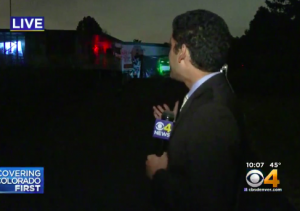Halloween-themed amusement parks and haunted house attractions can pose serious risks to patrons, given frequently low lighting levels, short-term staffing, and frightened patrons. Although these attractions are meant to spook guests, owners have a duty to provide patrons with a safe and secure premises. Safety measures may include weapons screenings, proper staff training and background checks, clearly marked exits, smoke detectors, and crowd control procedures. Should property owners fail in this critical responsibility, they may be held civilly liable for any injuries, assaults or wrongful deaths which occur as a consequence.
According to CBS Baltimore, a man was stabbed while attending “Nashville Nightmare” with a group of friends Friday, October 12, 2018.
In October 2017, The Los Angeles Times reports, “chaos erupted…when about 15 to 20 teens began snatching cellphones and other belongings from patrons at California’s Great America Halloween Haunt.”
Victims of Halloween Amusement Park Accidents or Violence: Know Your Rights
Halloween amusement park patrons have a right to be safe and secure while enjoying the property. By law, amusement park owners have a duty to protect patrons from any foreseeable harm. This responsibility is particularly critical when overseeing the safety of families. Should an amusement park property owner fail to implement proper security precautions, safety training, or equipment inspections, they may be held civilly liable for any injuries or deaths which occur as a consequence.
We’ve Recovered Millions for Victims of Property Safety Negligence…Contact us Now for a Free Consultation.

We represent our Clients on a contingency agreement, which generally means that no fees or payments are owed until and unless we recover. Anyone seeking further information or legal representation is encouraged to contact us via e-mail (click here) or by telephone at 888.842.1616. Consultations are free and confidential.
Choosing the Right Attorney
Selecting the right attorney for you or your family is highly important. You must feel confident that the attorney you hire has a complete understanding of the law applicable to your particular case, and has successful experience in handling such cases.
Important: Do not hire a lawyer who has violated the Rules of Professional Conduct!!!
You should not hire an attorney who calls you or visits you unsolicited, or anyone that contacts you directly to offer legal services. This activity is strictly prohibited by Rule 7.3 of the American Bar Association (ABA) Model Rules of Professional Conduct, which states as follows:

– RULE 7.3, ABA MODEL RULES OF PROFESSIONAL CONDUCT.
If an attorney, or someone acting on behalf of an attorney, contacts you in this manner, that attorney is in violation of this Rule. This unethical and unprofessional activity on the part of the lawyer is good sign that you should stay away. It is imperative that you are represented by an attorney who is capable of advocating for you within the confines of the law, and an attorney who fails to abide by the Rules of Professional Conduct is probably not the best fit. In fact, any such attorney should be immediately reported to the local State Bar Association. If you have been contacted in such an unsolicited manner, contact us and we’ll assist you in filing a report.
Contingency Fees Disclaimer: “Contingent attorneys’ fees refers only to those fees charged by attorneys for their legal services. Such fees are not permitted in all types of cases. Court costs and other additional expenses of legal action usually must be paid by the client.”
SaveSave
SaveSave
SaveSave
SaveSave


